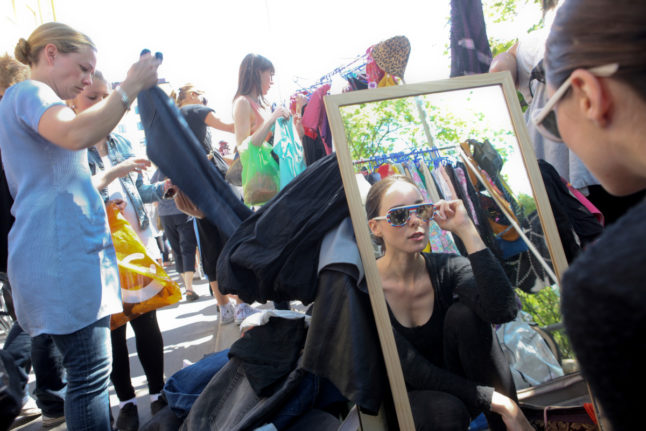Hobby income
If your total annual income is above 24,238 (in 2024, or 22,208 kronor in 2023 – including any salary you may earn from a full-time or part-time job), all money earned is taxable, even if it’s just a from a hobby, for example selling homemade crafts, blogging or performing.
You should save all documentation associated with your hobby (proof of purchases and sales linked to the hobby) for six years, even if you don’t need to declare it at first.
This includes not only things like handicrafts, artwork, or gardening, but also blogging and e-sports for example. But any of these could be classed as a business if you run it like one: for example, if you make a proactive effort to reach customers and expand your business.
Hobbies are defined by the Swedish Tax Agency as activities you do in your spare time without a profit-making goal and that is not your main source of income, and it’s the agency that makes the decision whether you are running a business or a hobby.
You need to fill in the form T2 in your tax declaration with information about any money you earned through your hobby, as well as any costs, and the Tax Agency will then calculate if you’re entitled to any deductions.
Once you earn more than 80,000 kronor a year from your hobby alone, this counts as a business and you need to register to pay VAT.
Selling items second hand
Made some cash by selling second hand items at a flea market or online? If it’s your own used belongings you’re selling, you can make a profit of up to 50,000 kronor each year without needing to pay tax on it (the reasoning being that you paid tax on the items when they were first bought).
Profit above 50,000 kronor is taxed as income from capital, but you can deduct the purchase cost, or if that’s unknown, you can make a 25 percent deduction from the sale price. There is an exception for some items considered collectables, including artwork and antiques, in which case you may need to follow slightly different tax rules.
If you are buying items to sell on for profit, rather than selling your own possessions second hand, this is usually classed as running your own business which means you follow the applicable tax rules for that, including VAT. Read more about second hand selling here.
Berries and foraging
If you sold berries, mushrooms or other items you picked yourself in Sweden, you do not have to pay tax on any profits unless you earned more than 12,500 kronor from the sales.
Using an umbrella company
For some freelance activities, you might decide to use an umbrella company to take care of the admin side.
This is worth considering if your freelancing will not be considered as a hobby and if you don’t want to organise the invoicing and taxes yourself.
There are several of these companies in Sweden: Frilans Finans, Cool Company, CanSolo, and Gigger, for example. You might want to look into the fees, level of customer service, and reviews from other users, in order to see which if any is right for you. They will take a small percentage of your income in return for taking care of the admin.
If you use these options, they will arrange the tax with each invoice, so you don’t need to do anything extra when tax season comes – just make sure that the details on your declaration match up with your documents.
Setting up as a sole trader
If your side hustle is a significant income source, it could be worth setting up as a sole trader, meaning you will fill out tax returns for income earned. If you are doing this alongside working as an employee, you need to register for FA tax, instead of F tax which is for people only working as a sole trader.
When you set up your sole tradership, Skatteverket will ask you to estimate how much money you will make and to submit a preliminary tax return. Then you pay tax each month based on that amount. At tax season, you submit your income declaration, and the agency will calculate how much tax you should have paid based on this. This means you could get a tax refund from the agency, or you may have to pay extra tax, depending on if your estimates were an over- or under-estimate.



 Please whitelist us to continue reading.
Please whitelist us to continue reading.
Member comments